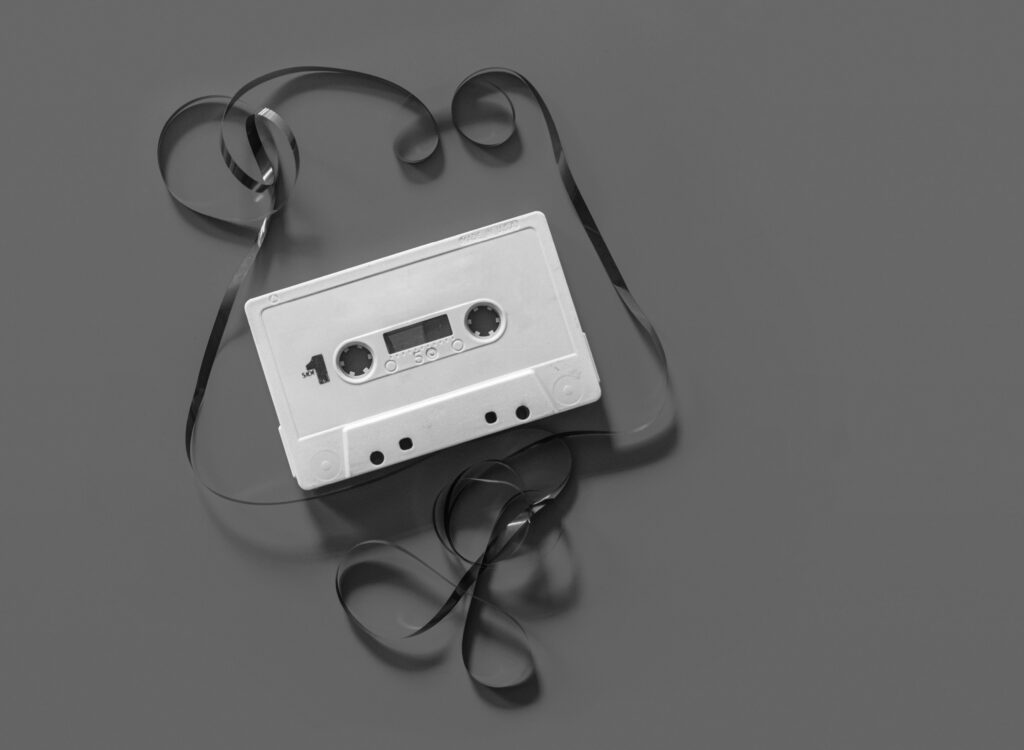The novelist and former CBC Radio columnist Jen Sookfong Lee once thought her love of pop culture would be a “passing phase, the sort of thing many sad teens use to distract themselves from the realities of their lives.” Now the divorced Gen-Xer from British Columbia concedes that hers is, in fact, “a forever relationship.” With Superfan — comprising eleven essays conceived as “a tribute to the longest commitment of my life”— Lee interweaves autobiographical narration with a thoughtful exploration of the ways mass entertainment shapes us, gives us stories, and fills voids, for better or for worse.
Lee grew up in Vancouver, the granddaughter of a man who “paid the five-hundred-dollar head tax upon his arrival in Canada at age seventeen.” Her grandfather listened to the CBC “all day long”; her father, who came to Vancouver after the Chinese Exclusion Act was repealed in 1947, favoured Chuck Berry records. Lee’s older sisters watched Dallas religiously, while she would tape “New Kids on the Block songs off the radio.” For three generations, pop culture was a tool, “the measure by which we judged ourselves.” Yet it proved a double-edged sword: “We might have worked hard to be as successful as Diane Keaton in Baby Boom, but we also had to contend with the growing realization that, while no one in the world was going to be as beautiful as Connie Sellecca on Hotel or Diane Lane in The Outsiders, my sisters and I were also never going to be as rich or as white.”
As a well-behaved girl from a traditional household, Lee “learned a particular way of moving through the world,” one that prioritized safety and modesty, even as television shows and glossy magazines portrayed other attitudes. In “The Good Princess,” she recalls seeing a photograph of Lady Diana Spencer, then a nineteen-year-old assistant kindergarten teacher, taking two of her students to a park. The future Princess of Wales was “unsmiling and fresh-faced” and stood “with her legs apart, light filtering through her skirt.” In that hint of defiance — no slip, no hosiery — the possibilities of a life less rigid shone through. Of course, breaking from prescribed behaviours is not always easy or comfortable.
In “The Boys on Film,” Lee tackles a difficult topic she has long resisted: how “fetishized stereotypes” are a manifestation of racism. “I will approach it the best way I know how,” she writes, “by looking outward to the culture that helped me, in turn, look inward.” Among references to several films that “cut to the core of my emotional development,” Lee describes a classic scene from The Karate Kid Part II : Daniel and Kumiko’s first kiss. “All the hallmarks of submission are there,” she explains. The tea Kumiko serves is meant only for Daniel, not for herself. She smiles demurely. But then, “subject to her own untameable desires,” she loosens her hair (and her sexual energy) and initiates the pivotal kiss. Eventually, Lee came to see how some white men expected her to follow a similarly clichéd script — and how such expectations can have violent consequences for Asian women.

Measuring oneself through mix tapes and other mass media.
Daniel Schludi; Unsplash
Lee investigates desire differently with “The Genius.” In it, she takes inspiration from Justin Bieber: Seasons, the online documentary series from 2020. In one episode, the Canadian pop star lets his voice ring out in the Utah desert and turns to his wife, Hailey, for an ego boost. “Do I sound good?” he asks. Lee imagines what she would do if she were Hailey. She’d prioritize Justin’s needs first. She’d encourage and care for him. She’d “watch and wait and smile,” looking pretty all the while. Through the hypothetical scenario, Lee realizes how many of her own real-life wants and needs have been “submerged by marriage and responsibility.” Neither regulated nor sanitized, the longings she names at first sound a little frivolous — like the “late nights and long dates” or the “cheap wine and fine cheese, midnight snacks and fuzzy mornings.” But as her list expands, it seems to get at a deeper yearning: “I wanted my own house, sparkly light fixtures, wallpaper that glimmers in the dawn, a window that feels like an opening.”
Lee easily flows between the playful and the serious. This is especially evident in her most poignant essay, “The Perfect Mother.” One moment she is poking fun at every writer’s dream: “becoming a member of the local literary scene,” full of champagne and “knowing chuckles over jokes about Jacques Derrida.” The next, she recounts her return home as a young adult after her first major depressive episode. She knew not to expect a warm welcome or hug from her mother — who hadn’t touched her in years — so she sought comfort in Keeping Up with the Kardashians. Kris Jenner’s hyper-involvement in her children’s lives contrasts starkly with the neglect and barrage of insults Lee experienced growing up. The reality star goes to pole-dancing class with Kim Kardashian and supports her through an anxiety attack. She knows how to channel her daughter’s love of fame. “I could never imagine my mother seeing me this way,” Lee writes, “or seeing me much at all.” Whatever its artistic merit, the series offered Lee an avenue for meaningful introspection.
At times, these essays flit from one topic to the next. This isn’t a criticism. Reading Superfan often feels like an easy conversation with a close friend, probing the tangled emotions and influences that lurk under the surface of seemingly trivial pleasures.
Anna Maria Sordjan recently graduated from Toronto Metropolitan University.

